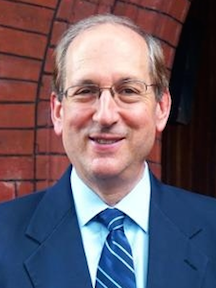At Phi Beta Kappa, we are careful to describe the fields of study that we champion as the liberal arts and sciences. This might appear redundant to those who truly understand the meaning of the liberal arts. The classical understanding of the seven liberal arts included, in the quadrivium, arithmetic, geometry, and astronomy. In the modern university curriculum, biology, chemistry, and physics have joined the liberal arts. We use liberal arts and sciences as a reminder, especially for opinion shapers and decision makers outside the academy, of the importance of a well-rounded education.
I found a powerful articulation of the liberal arts foundation of science in a Science magazine editorial last year, “Redo college intro science” (March 25, 2022), by David Asai, Bruce Alberts (ΦBK, Harvard College), and Janet Coffey. The authors of the editorial observe that each year more than one million college students take an introduction to biology course, making it the perfect place to provide the foundation of a meaningful science education for majors and nonmajors alike. They call for introductory science courses not to ask students to “merely repeat what they ‘know,’ ” and instead “to explain what they think.” They are, in essence, calling for a liberal arts approach to science education.
With so many facts and concepts to cover, faculty have little time to engage students in what should be the most important learning goal: to understand how the scientific process advances knowledge and arrives at evidence-based judgments on issues such as clean drinking water, climate change, and vaccination.
The kind of science education envisioned by Asai, Alberts, and Coffey touches on two major themes of contemporary liberal education. First, a broad-based liberal arts and sciences education prepares us for meaningful, productive, and engaged lives as citizens. The study of science, for both science majors and nonmajors, is vital for all three outcomes of a higher education, providing a basis for understanding our world, making us more productive contributors to our society, and enhancing our ability to evaluate scientific evidence in order to make informed decisions on an increasing range of public policy issues.
Second, liberal arts education is inherently interdisciplinary. There may be no better way to illustrate this attribute than through integrative project learning, bringing a range of disciplinary approaches to a complex problem. Asai, Alberts, and Coffey mention clean water, climate change, and vaccination. Each of these issues requires contributions from across the curriculum, including biology, chemistry, and physics; philosophy, ethics, and history; and psychology, sociology, and economics.
What is the role of such project-based learning in a liberal arts and sciences education? The Phi Beta Kappa Senate has just approved a resolution creating a special task force charged with a multiyear evaluation of our “Stipulations,” by which chapters select new ΦΒΚ members and the Society evaluates applications for new campus-based chapters. The most recent such review was conducted over a decade ago. We will continue to celebrate what is foundational to a liberal arts and sciences education by widening our lens to analyze the ways in which this education is most relevant to our world. We will articulate a contemporary trivium and quadrivium that will embrace our past and teach to our future. When we do so, we are doing more than setting standards for admitting members and establishing chapters. We are helping to define, shape, and frame the ongoing mission of higher education in our nation.
Frederick M. Lawrence
Secretary and CEO




